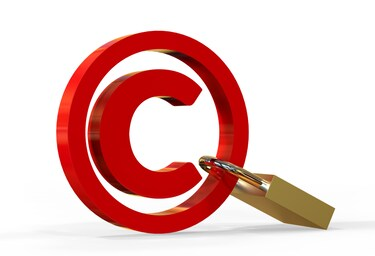Copyright Law in India extends protection to creators and artists from unauthorized use/reproduction of their creative work. If you are ...
Copyright Law in India extends protection to creators
and artists from unauthorized use/reproduction of their creative work. If you
are an artist/creator/software developer etc., then you have a moral and
legally enforceable right of complete ownership over your work. This means you
enjoy complete and exclusive freedom to use, distribute, reproduce, expand, and
share your work. Artists and creators usually own through their work by
assigning or licensing their copyright. This means an artist can authorize the
use of his creative work through an Agreement of Copyright License or an
Agreement of Copyright Assignment. Let us understand what these terms mean.
Agreement
of Copyright License: Under an Agreement of Copyright License, the owner of the copyrighted
work (creator/artist/owner by contract) can allow another person or an
enterprise (such as a buyer of the product or a production house like T-Series)
to legally use the copyrighted work. Thus, the party receiving such a license
can use the copyrighted material in any way they like, provided such use is in
consonance and in alignment with the terms and conditions of use stipulated
under the Agreement. The Creator of the work usually receives a royalty in lieu
of allowing use of his copyrighted work. Such a license can be exclusive, that
is, only the party with whom the Agreement is signed is allowed to use the
License; or the License can be non-exclusive, in which case the party receiving
the license to use can further distribute exclusive licenses to third parties
to use the copyrighted material. A Copyright License Agreement will typically
state the duration of such license. Thus, it is not a life-long license. However,
it can be subject to extension, revocation, termination or revision as agreed
between the parties in written. The Agreement also must describe the
copyrighted work in detail. Both the parties must be adequately identified in
the Agreement. Further, the rights which are being licensed must also be explicitly
mentioned in order to avoid future disputes The License can be granted with
respect to existing as well as future work.
Apart from Voluntary License (as stated above), The
Copyright Act of 1957 also allows foe Compulsory Licensing. Compulsory
Licensing refers to mandatory licensing of one’s work in interest of public.
Agreement
of Copyright Assignment: A Copyright Assignment Agreement is different from a Licensing
Agreement in various crucial aspects. It is a partial permission to use the
copyright and the stipulated conditions have to be strictly adhered to,
otherwise unauthorized actions can amount to infringement of copyrights of the
owner. The purpose of Copyright Assignment is to allow the copyright owner
reach a larger audience for his creative work. Usually, a creator or an artist
will not have enough resources or manpower to expand the outreach of his work.
In such a case, he/she may hire a company or a distributor for his work, such
as a publisher, or a music company like T-Series etc. This is copyright
assignment, in so far as the assignee doesn't get ownership rights in the
artistic work, but only certain rights to use the work as agreed to in the
Copyright Assignment Agreement. Nowadays, Artists use a combination of
licensing and assignment in their Copyright Transfer Agreements. However, it
must be noted that in either case, it is important to clearly and aptly mention
the rights which will be transferred to the second party. For example,
assignment of publishing rights of a literary novel shouldn’t mean assignment
of right to turn the novel into a cinematograph piece. If it is allowed, the
Artist will lose a considerable amount of monetary gains in his work. For
instance, a comic book writer must be able to earn profit if a company decided
to manufacture plastic figured of characters created by him in his comic book.
In such a case, he will sign a copyright assignment agreement, not a license
agreement.
An Agreement of Copyright Assignment is valid for five
years, if not stated otherwise in the agreement.
It is the duty of the Artist or the Creator to protect
his copyrighted work and be vigilant enough. Read our article on Copyright Law
in India to understand a Creator’s rights and duties in detail.

















COMMENTS